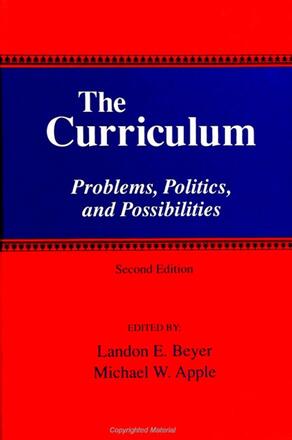
The Curriculum
Problems, Politics, and Possibilities (Second Edition)
Alternative formats available from:
This new edition of the classic text extends the scope of critically-oriented work in curriculum studies.
Description
Such was the praise for the first edition of The Curriculum. Now Landon E. Beyer and Michael W. Apple join together with other notable contributors in this new edition to examine a range of issues, ideas, and practices connected to the development, evaluation, and effects of curriculum ideas and practices.
With substantially new and revised material, the book includes both historical and contemporary efforts to redefine the public school curriculum. It analyzes both the explicit ideas that are conveyed through the curriculum as well as the social, political, aesthetic, ethical, and moral perspectives and values with which curriculum is connected. In outlining both theoretical and practical aspects of the curriculum, and the social values and purposes with which they are connected, the book raises a host of important questions and dilemmas about the nature and direction of educational policies and practices.
Taking an integrated perspective, The Curriculum outlines both theoretical issues and practical possibilities, in the process raising questions about the nature and direction of educational policies and practices. As it clarifies the connections between social possibility and the concrete realities of classrooms and other educational arenas, this book elucidates the meaning and value of education, and some of the reasons for the continuing debates within the field.
Landon E. Beyer, Associate Dean for Teacher Education at Indiana University, is the author and coauthor of many books including most recently Creating Democratic Classrooms: The Struggle to Integrate Theory and Practice. Michael W. Apple, the John Bascom Professor of Curriculum and Instruction and Educational Policy Studies at the University of Wisconsin, Madison, has published numerous books including Cultural Politics and Education.
Reviews
"This is an excellent, carefully edited, well-produced curriculum reader that deserves to do very well indeed, if only because it embodies so much that James B. Macdonald taught about the study of the curriculum; namely that it is a human endeavor, not a scientific pursuit. " — Comparative Education Review